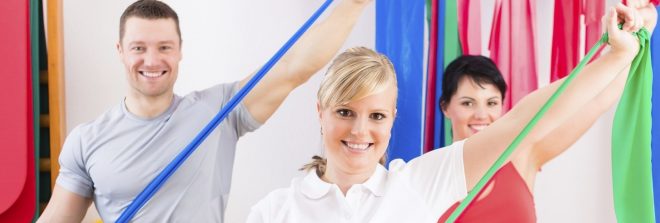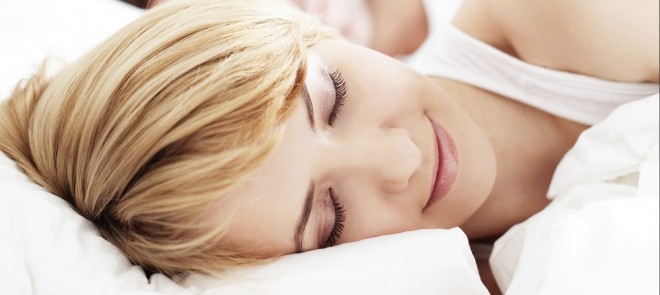![]()
Clinic News
As the dark nights have drawn in very rapidly and we are battling wind and rain we are less likely to want to get out there and keep exercising. The pending festivities of Christmas consume our time and the first thing to go is our exercises routine - "I'll get back to it after Christmas" you say, but please - be kind to yourself and don't let it slip - a brisk walk at lunch time will stop you feeling like a nocturnal creature and time outdoors with the kids or the dog at the weekend will blow away some winter blues.
If you are off to join family over Christmas check out your driving position - did you know we have a great video on our website giving you some helpful advice?
If you are staying over - check out that bed- it's likely that your host never sleeps on it! If it’s a bit hard, layer it up with a spare quilt. If it's too soft could you put it on the floor for more support? We often see patients after Christmas whose back has been upset by that old bed. And don't forget to take your pillow with you - necks need good support too -there should always be room for your pillow in your luggage.

Is Slouching Affecting Your Mood?
We know that facial muscles affect facial expression, and in turn can influence emotion, but it’s rarely considered that other muscular states can also affect mood. Research suggests that this is the case and that sitting upright can build resilience to stress.
Especially when under pressure and distracted, people are likely to pay less attention to their posture. However, research indicates that good posture at times of stress can help to maintain self-esteem and positive mood, whereas slumped postures have the opposite effect.
It is important to take care of your posture and there are a number of ways to do this, both at home and at work, and especially when using a computer.
- When relaxing in a chair, such as when watching television, it is important to ensure that as much of the body as possible has contact with the chair for optimal support.
- Avoid sitting for more than 30-40 minutes at a time. Remember to stand up, stretch, change position, walk around and go and get a drink of water!
- When stretching, concentrate on opening up your chest, abdominal area and hip flexors. Your chiropractor can advise you on the best movements for this.
- Perform exercises to strengthen the muscles that support your posture. Exercises such as resistance band pull-aparts are good, and your chiropractor can advise you on other suitable exercises.
Of course, perhaps the time that slouching most commonly occurs in our society is during the hours that are spent hunched over a desk, working at a computer.
- Ensure that your desk, chair and monitor are set up following proper guidelines.
- Take regular breaks. Set a timer to remind yourself if you’re guilty of forgetting to do this when immersed in work.
- If using a laptop, ensure that is placed on a desk or table rather than your lap to avoid looking down, slouching, and leaving your neck unsupported.”
Your chiropractor will be able to conduct a postural analysis and suggest stretches, exercises and lifestyle changes that can improve your seated posture and enhance your mood.

High Heels & Back Pain
Sometimes the cause of back pain is obvious, for example a sports injury.
However… Sometimes the culprit could be surprising, such as improper footwear, especially high heels.
Why do they cause damage? When women wear high heels their body will attempt to compensate for the uneven balance they cause by flexing or forward bending their hips and spine. Heels can cause people to mimic the way a person would walk on a ramp and thus increase the pressure placed on the balls of the feet and the knees.

Lower Back
The lower back is also pushed forward causing the hips and the spine to become dis-aligned. The changes to the posture cause a prolonged tensing of the calves, hips and back muscles. This results in excess muscle fatigue and strain at the end of the day. Over long periods of time this can cause serious problems for your leg muscles and spine health
The Height of the Heel
The height of the heel can also determine the weight carries be the footwear. As the height of the heel increases so does the pressure on the ball of the foot. Stilettoes can therefore cause the most damage to your posture and overall spine health. It is therefore advised where possible to wear as lower a heel as possible
How to help your back:
If you do wear high heels take a few aspects into consideration to make sure you’re causing yourself as little damage as possible
- Try and avoid wearing high heels for long periods of time where possible
- If you have to commute each day it is wise to commute in flat shoes that cushion and support the natural arch of your foot and change into high heels when you get into the office
- If you do wear a lot of high-heeled shoes try and opt for ones with a lower, wider heel, preferably no higher than two inches, to reduce the amount of pressure being placed on your feet and calf muscles
- It can also be wise to buy shoes in the afternoon, when feet are at their largest, this will make sure your shoes will be to accommodate for the natural expansion of the feet throughout the day.

Make Sure Not To Trip!
As your balance can be more unsteady when you wear high heels it increases the possibility of you tripping over and causing yourself an injury. In consideration of this, it is a good idea to opt for shoes with a leather insole to keep the foot from slipping and provide a steadier grip when you’re walking around

Pillows For Sound Sleep
Today’s modern living which often entails hours of driving and hunching over work stations plays havoc with your neck. Neck pain can be felt in a large number of ways, either in your neck itself, across the shoulders, down the arms or as a headache. Neck and back problems are often worsened, if not caused, by improper sleeping habits and bad or worn out pillows. Sleep is very important to your body’s repair process, and a poor pillow often accounts for disturbed sleep. Compromise the quality of sleep, and overall health and mental fitness may suffer as well.
To support your tender and vulnerable neck you need to use a pillow that can be shaped to hold your neck in alignment and adequately support your head. This relieves muscle tension around your neck and shoulders and correctly positions your head, arms, and lower back for a relaxed sleep.
The support of a pillow should be mostly under your neck. Pillows that can be fluffed and squished to fit your unique contours, shape, and sleeping posture offer the best solution. A pillow should “fit”, just like a pair of shoes.
Natural-fill pillows such as down and feather provide the most comfort, long-term performance, and adjustability of any pillow, and they gently support your head. Unfortunately, most people hang on to a pillow long after its healthy sleeping power.
It is crucial you avoid using little or no pillow as this places your unsupported neck under strain all night long. It is equally unwise to use too many pillows or a pillow that is too firm as this can push your neck up, preventing the neck joints from moving properly, regardless of which position you sleep in.
It is also important to remember that a pillow should be placed between your neck and shoulder, but not underneath your shoulder itself. Taking this into account, a person with broader shoulders will require a larger pillow than someone with narrower shoulders, if they sleep on their side.
We treat all conditions that affect any muscle or joint in your body, from your head to your little toe! One of the most common complaints that we treat is back pain and Chiropractic is recommended by the government authority, the National Institute for Clinical Excellence (NICE) for acute and chronic back pain. Some of the other conditions that we treat are neck and headache, shoulder pain, leg and hip pain, knee and foot pain, sciatica and arthritis. Our registered Chiropractors all have at least five years of training. Treatment costs can be covered through most health insurers. If you are in any doubt, we are always very happy to talk with you on the phone to see if your condition will respond well to Chiropractic treatment. Call the clinic now to arrange an appointment time that works for you. 0115 9225085 If you would like to opt-out of receiving these newsletters please follow the unsubscribe link below, email alex@beestonchiropractic.co.uk or let us know at your next appointment.





